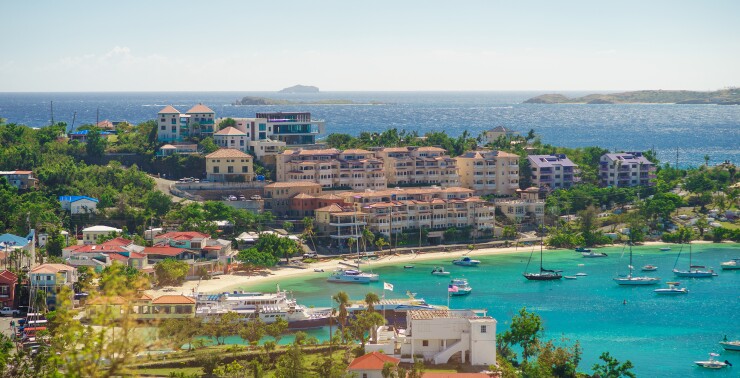A nearly $3 cut in the federal rum cover tax rate would be an issue for the U.S. Virgin Islands and Puerto Rico, although the latter figured the lower rate into its plans of adjustment.
A statement by the U.S. Office of Insular Affairs on Thursday said the rate for the current calendar year would be $10.50, as a bill was introduced in Congress to keep the rate at $13.25 remains in limbo.
The Virgin Islands uses the funds to support the government pension system and to pay matching fund bonds, while Puerto Rico uses its cut for the general fund.
The Virgin Islands government assumed the tax would remain at $13.25 per proof-gallon when it created its special purpose vehicle and priced its rum tax bond refunding at the end of March.

Virgin Islands Senator and Chair of the Legislative Committee on Finance Kurt Vialet said Friday he is "very concerned" about the reduction's impact on the special purpose vehicle, which was "structured at a rate of $13.25."
As a result of the lowered tax, Vialet said, the Virgin Islands will receive $226.2 million instead of $284.5 million this year. The islands' government was anticipating using the extra $59.2 million
"The recent development once again places the GERS in a precarious situation," Vialet said. He urged Gov. Albert Bryan Jr. and Delegate to Congress Stacey Plaskett to petition Congress to reinstate the $13.25 rate.
"The fiscal year 2023 advance payment to the USVI Government was calculated using the $10.50 per proof gallon rate since the $13.25 per proof gallon rate expired as of December 31, 2021," said an Office of Insular Affairs spokeswoman. "Some members of Congress have introduced legislation to extend the rate but [it is] still pending and nothing has passed."
Plaskett and Puerto Rico Resident Commissioner Jenniffer González Colón have sponsored a bill to permanently increase the rum tax to $13.25. "I am confident the tax extender legislation will bring us to the $13.25 rate and bring retroactive funds to GERS," Plaskett said.
Prior to
Moody's Senior Credit Officer Thomas Aaron said, "The reduced rum tax cover-over rate makes less money available to contribute to GERS, and contribution inflows are critical to the solvency of GERS."
Should GERS run out of assets, the island "cannot likely afford the cost of paying pensions in their entirety to retirees while concurrently delivering core governmental services and paying debt service," Aaron said. "Since it is politically unlikely that the USVI would prioritize debt service over retiree pensions, lower contribution inflows to GERS are credit negative."
The senior and subordinate bonds have first and second liens on the rum revenues and, according to Vialet, would still be paid in full this year at $10.50.
In May, Moody's said the bond refunding bought the pension system some time, in part by providing capitalized interest on the bonds for three years.
Bryan did not immediately respond to a request for comment.
The Puerto Rico Oversight Board's January approved fiscal plan projected the rum tax to account for $211 million in revenue for Puerto Rico's government in the current fiscal year, which started July 1, based on the $10.50 tax rate. That would be 1.9% of general fund tax revenues.
Holders of restructured Puerto Rico Infrastructure Finance Authority rum tax bonds are also affected by the lower rate. The central government plan of adjustment, which was enacted this spring, assumed this lower rate in calculating the bond's contingent vehicle instrument payments.
A spokesperson for the Puerto Rico Fiscal Agency and Financial Advisory Authority said of the $10.50 rate, "this may be a concern for our fellow islanders."





